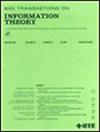Distributed Gradient Descent for Functional Learning
IF 2.2
3区 计算机科学
Q3 COMPUTER SCIENCE, INFORMATION SYSTEMS
引用次数: 0
Abstract
In recent years, different types of distributed and parallel learning schemes have received increasing attention for their strong advantages in handling large-scale data information. In the information era, to face the big data challenges that stem from functional data analysis very recently, we propose a novel distributed gradient descent functional learning (DGDFL) algorithm to tackle functional data across numerous local machines (processors) in the framework of reproducing kernel Hilbert space. Based on integral operator approaches, we provide the first theoretical understanding of the DGDFL algorithm in many different aspects of the literature. On the way of understanding DGDFL, firstly, a data-based gradient descent functional learning (GDFL) algorithm associated with a single-machine model is proposed and comprehensively studied. Under mild conditions, confidence-based optimal learning rates of DGDFL are obtained without the saturation boundary on the regularity index suffered in previous works in functional regression. We further provide a semi-supervised DGDFL approach to weaken the restriction on the maximal number of local machines to ensure optimal rates. To our best knowledge, the DGDFL provides the first divide-and-conquer iterative training approach to functional learning based on data samples of intrinsically infinite-dimensional random functions (functional covariates) and enriches the methodologies for functional data analysis.功能学习的分布式梯度下降
近年来,不同类型的分布式并行学习方案因其在处理大规模数据信息方面的强大优势而受到越来越多的关注。在信息时代,面对函数数据分析所带来的大数据挑战,我们提出了一种新颖的分布式梯度下降函数学习(DGDFL)算法,在重现核希尔伯特空间的框架内,跨众多本地机器(处理器)处理函数数据。基于积分算子方法,我们首次从文献的多个不同方面对 DGDFL 算法进行了理论理解。在理解 DGDFL 的过程中,首先提出并全面研究了与单机模型相关的基于数据的梯度下降函数学习(GDFL)算法。在温和条件下,我们得到了基于置信度的 DGDFL 最佳学习率,而不会出现以往函数回归中正则性指数饱和边界的问题。我们进一步提供了一种半监督 DGDFL 方法,以弱化对本地机器最大数量的限制,从而确保最佳学习率。据我们所知,DGDFL 提供了第一种基于内在无限维随机函数(函数协变量)数据样本的函数学习分而治之迭代训练方法,并丰富了函数数据分析方法。
本文章由计算机程序翻译,如有差异,请以英文原文为准。
求助全文
约1分钟内获得全文
求助全文
来源期刊

IEEE Transactions on Information Theory
工程技术-工程:电子与电气
CiteScore
5.70
自引率
20.00%
发文量
514
审稿时长
12 months
期刊介绍:
The IEEE Transactions on Information Theory is a journal that publishes theoretical and experimental papers concerned with the transmission, processing, and utilization of information. The boundaries of acceptable subject matter are intentionally not sharply delimited. Rather, it is hoped that as the focus of research activity changes, a flexible policy will permit this Transactions to follow suit. Current appropriate topics are best reflected by recent Tables of Contents; they are summarized in the titles of editorial areas that appear on the inside front cover.
 求助内容:
求助内容: 应助结果提醒方式:
应助结果提醒方式:


